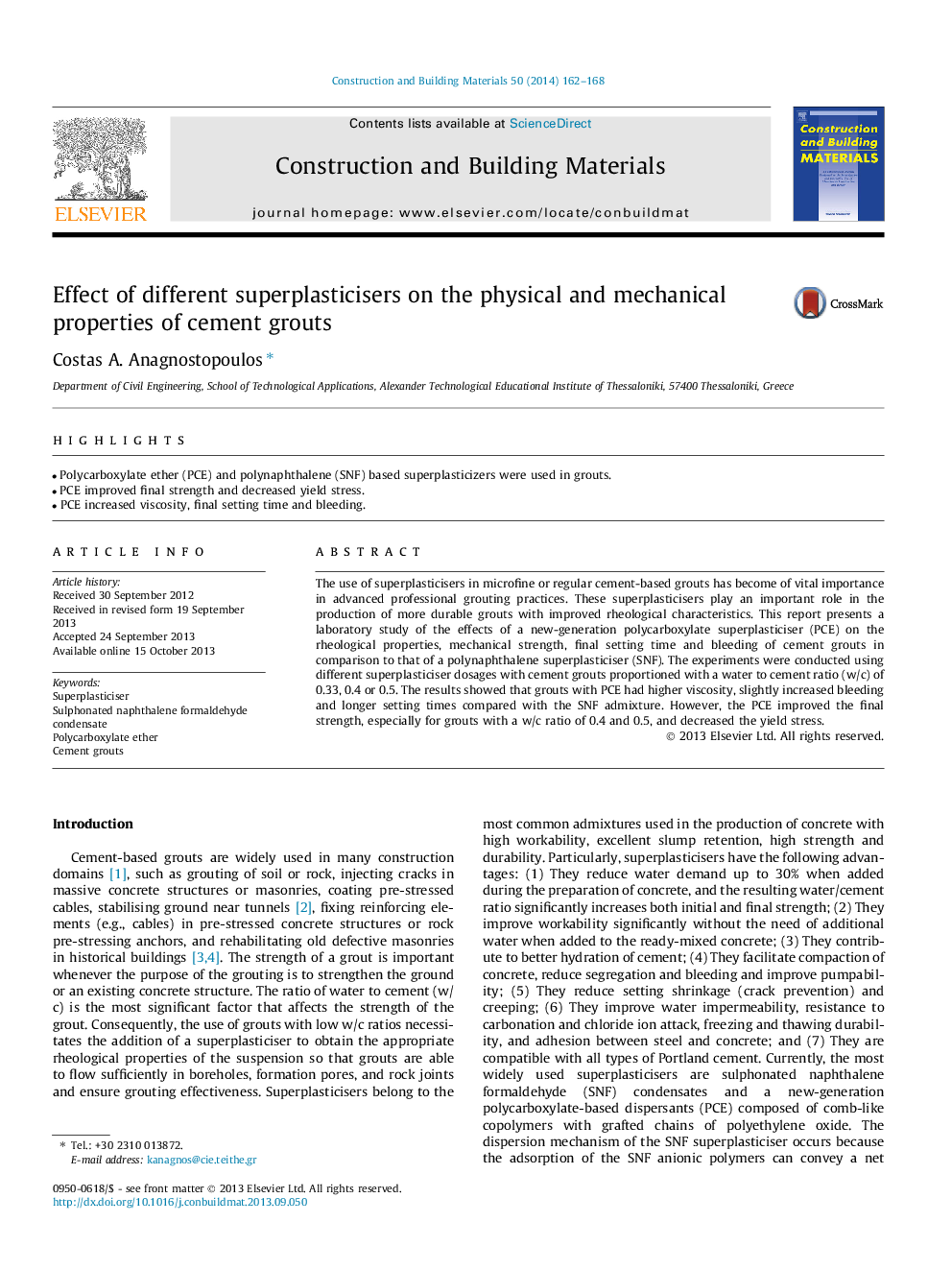| Article ID | Journal | Published Year | Pages | File Type |
|---|---|---|---|---|
| 257871 | Construction and Building Materials | 2014 | 7 Pages |
•Polycarboxylate ether (PCE) and polynaphthalene (SNF) based superplasticizers were used in grouts.•PCE improved final strength and decreased yield stress.•PCE increased viscosity, final setting time and bleeding.
The use of superplasticisers in microfine or regular cement-based grouts has become of vital importance in advanced professional grouting practices. These superplasticisers play an important role in the production of more durable grouts with improved rheological characteristics. This report presents a laboratory study of the effects of a new-generation polycarboxylate superplasticiser (PCE) on the rheological properties, mechanical strength, final setting time and bleeding of cement grouts in comparison to that of a polynaphthalene superplasticiser (SNF). The experiments were conducted using different superplasticiser dosages with cement grouts proportioned with a water to cement ratio (w/c) of 0.33, 0.4 or 0.5. The results showed that grouts with PCE had higher viscosity, slightly increased bleeding and longer setting times compared with the SNF admixture. However, the PCE improved the final strength, especially for grouts with a w/c ratio of 0.4 and 0.5, and decreased the yield stress.
